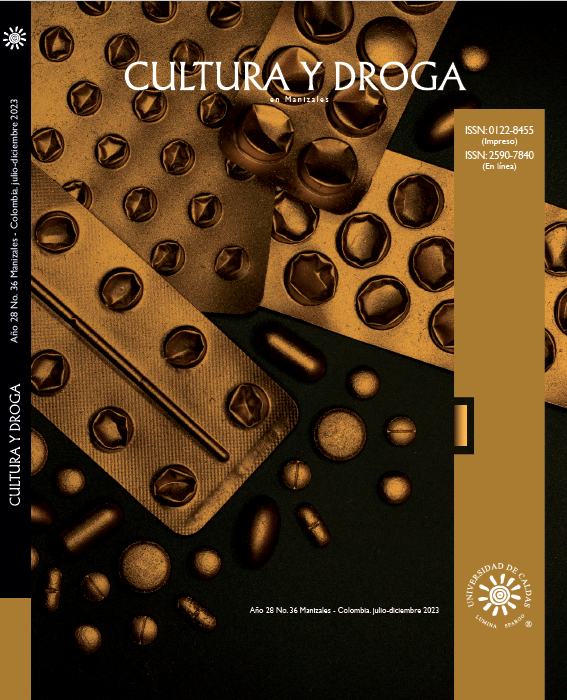Authors
Abstract
This article explores the complex relationship between the classifying dynamics of medical psychiatry and the philosophical notion of Epistemic Injustice, proposed by Miranda Fricker in 1990. The starting point in this work is the statement that the philosophers Crichton, Carel and Kidd made in this regard in the bulletin of the British Journal of Psychiatry in 2017. The objectives of this work are 1) to critically reflect on the successes and failures of this approach; and 2) to expand the proposal of these authors to include the two modalities that Epistemic Injustice can take regarding diagnostic systems of the DSM5-TR or ICD-11 type, namely, Testimonial Injustice and Hermeneutical Injustice. A documentary analysis of selected works has been carried out to achieve these objectives, which make up the critical-argumentative apparatus of this work. As a result of this journey, the introduction and promotion of
a Second Person Perspective is proposed, which becomes a space for collaborative construction between the professional, the consultant and the caregiver environment when making important clinical decisions (an alternative to unilateral First and Third
Person Perspectives). This resource represents an effort to value the interpretative, comprehensive, and socio-constructionist dimension of psychiatry.
References
Blais, L. (2002). La psiquiatría comunitaria y los movimientos sociales: choque de dos mundos. Investigación en Salud, IV(2).
Beck, U. (1998). La sociedad del riesgo: Hacia una nueva modernidad. Paidós.
Canguilhem, G. (1990). Le Normal et le pathologique. PUF.
Caponi, S. (2009). Un análisis epistemológico del diagnóstico de depresión. Interface- Comunicação, Saúde, Educação, 13(29), 327-338.
Carel, H. y Kidd, I. (2014). Epistemic injustice in healthcare: a philosophical analysis.Med Health Care Philos, 17: 529-40.
Crichton, P., Carel, H. y Kidd, I. (2017). BJPsych Bulletin, 41, 65-70, doi:10.1192/pb.bp.115.050682
Christiansen, M. (2017). Epistemología depredadora y paz violenta. Consideraciones filosóficas sobre la construcción de una justicia cognitiva. International and Multidisciplinary Journal of Social Sciences, 6(3), 281-306. doi: http://dx.doi.org/10.17583/rimcis.2017.2992.
Christiansen, M. (2019a). La profesionalización científica de las relaciones de ayuda:excesos y suspicacias. European Journal of Social Sciences Studies, 4(5). https://zenodo.org/record/3544662#.ZBAMc-zMI6U
Christiansen, M. (2019b). Violencia interpersonal y arrogancia neutralista. Un abordaje ético-epistemológico sobre la argumentación y la objetividad. Revista Internacional Interdisciplinar INTERthesis 16(1), 91-107. doi: https://doi.org/10.5007/1807-1384.2019v16n1p91
Christiansen, M. (2020). Parasitismo argumental. El punto muerto de la deliberación.Oxímora. Revista Internacional de Ética y Política, (16), 50-62. doi: 10.1344/oxi.2020.i16.29689 http://revistes.ub.edu/index.php/oximora/article/view/29689/30722
Darwall, S. (2006). The second-person standpoint: morality, respect, and accountability. Harvard University Press.
Desviat, M. (2006). La antipsiquiatría: crítica a la razón psiquiátrica. Norte de Salud Mental, 6(25), 8-14.
Dumit, J. (2003). Is it me or my brain? Depression and neuroscientific facts, Journal of Medical Humanities, 24(1-2), 35-47.
Foucault, M. (1975/2002). Vigilar y castigar: nacimiento de la prisión. Siglo XXI Editores Argentina.
Foucault, M. (2004) Naissance de la Biopolitique. Cours au Collège de France 1978-1979. Gallimard.
Fricker, M. (2007/ 2017a). Injusticia Epistémica. El poder y la Ética del Conocimiento. Herder. Edición Kindle.
Fricker, M. (2016). Epistemic Injustice and the Preservation of Ignorance. In: Peels,R. y Blaauw, M., (eds.) The Epistemic Dimensions of Ignorance. Cambridge University Press, 144-159. https://doi.org/10.1017/9780511820076
Fricker, M. y Jenkins, K. (2017b). Epistemic injustice, ignorance and trans experiences.In A. Garry, S.J. Khader y A. Stone (Eds.), The Routledge
Companion to Feminist Philosophy. Routledge. https://doi.org/10.4324/9781315758152-23
Fricker, M. (2022). El Concepto de Injusticia Epistémica en evolución. En De Brasi,L. y Santibánez, C. Injusticias Epistémicas. Análisis y Contextos. Palestra.
Furedi, F. (2004). Therapy Culture. Cultivating vulnerability in an uncertain age.Routledge.
Gergen, K. (1996). Realidades y relaciones. Aproximaciones a la construcción social. Paidós.
Goffman, E. (1961). Asylums: Essays on the social situation of mental patients and other immates. Doubleday.
Grippaldi, E. (2021). Etiologías legas en culturas terapéuticas. Narrativas biográficas del comienzo de la depresión en usuarios de servicios de salud mental. Argumentos.Revista de Crítica Social, 0(23), 240-271. https://publicaciones.sociales.uba.ar/index.php/argumentos/article/view/6499
Hacking, I. (1995). The looping effects of human kinds. En D. Sperber, D. Premack, y A. Premack (eds.). Causal Cognition: An Interdisciplinary Approach, 351-383.Oxford University Press.
Hacking, I. (2001). ¿La construcción social de qué? Paidós.
Han, B-Ch. (2012). La sociedad del cansancio. Herder Editorial.
Han, B-Ch. (2014) La agonía del Eros. Herder
Illouz, E. (2010). La salvación del alma moderna. Terapia emociones y la cultura de la autoayuda. Katz.
Kidd, I. J. y Carel, H. (2016). Epistemic injustice and illness. J Appl Philos, (34),172-90.
Larraín, J. y Franck J.F. (2021). Perspectiva de segunda persona y racionalidad en las decisiones morales. Evidencia científica y límites del emotivismo. Philosophia, 81(2).
Lamoureux, J. (1994). Le partenariat à l'épreuve. L'articulation paradoxale des dynamiques institutionnelles et communautaires dans le domaine de la santé mentale. Éditions Saint-Martin.
Martínez-Hernáez, Á. (2017). “El secreto está en mi interior”. La neuropolítica y la emergencia de las neuronarrativas en el consumo de antidepresivos. En J.M. Comelles y E. Perdiguero-Gil (Coords.), Educación, comunicación y salud,perspectivas desde las ciencias humanas y sociales. 305-320. URV.
Molina-Pérez, A. (2013). ¿Normal o patológico? El enfermo imaginario en tierra de nadie. Arbor, 189(763). a068. doi:
http://dx.doi.org/10.3989/ arbor.2013.763n5005
Ortiz-Lobo, A. (2013). Hacia una psiquiatría crítica. Editorial Grupo 5.
Pauen, M. (2012). The second-person perspective, Inquiry, (55), 33-49.
Pérez-Álvarez, M. (2021). Ciencia y pseudociencia en psicología y psiquiatría, Más allá de la corriente principal. Alianza.
Pignarre, P. (2001). Comment la dépression est devenue une épidémie. Hachette.
Radi, B. (2022). Injusticia hermenéutica: un ejercicio de precisión conceptual.Estudios de Filosofía, 66, 97-110. https://doi.org/10.17533/udea.ef.347837
Roudinesco, E. (2000). ¿Por qué el psicoanálisis? Paidós Ibérica.
Rose, N. (2003). The neurochemical self and its anomalies. En: Ericson, R.; Doyle,A. (eds.), Risk and mortality. University of Toronto Press, 407-432.
Santos, B.S. (1998). La globalización del derecho: los nuevos caminos de la regulación y la emancipación. ILSA-Universidad Nacional de Colombia.
Santos, B.S. y Meneses, P. (eds.) (2014). Epistemologías del Sur Perspectivas. Akal. Thériault J-Y (1995). L'identité à l'épreuve de la modernité.
Écrits politiques sur l'Acadie et les francophonies canadiennes minoritaires. Éditions d'Acadie.
Torres, F. (18 de junio de 2023). Luces y sombras sobre la industria de medicamentos de salud mental. Salud con Lupa.
https://saludconlupa.com/salud-mental/lasfarmaceuticas-y-la-salud-mental/
Touraine, A. (1992). Critique de la modernité. Fayard.
WHO. (2023). Depresión. Organización Mundial de la Salud. https://www.who.int/es/health-topics/la-d%C3%A9pression#tab=tab_1

 PDF (Español)
PDF (Español)
 FLIP
FLIP






















